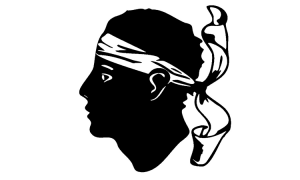Language/Corsican/Grammar/Pronouns
Hi Corsican learners! 😊
In today's lesson, we will be discussing the use of pronouns in Corsican. Pronouns are an important part of any language, and understanding how to use them correctly is essential for speaking and writing Corsican. We will look at the different types of pronouns, how they are used, and some examples of their usage.
Types of Pronouns
Pronouns can be divided into two main categories: personal pronouns and possessive pronouns. Personal pronouns refer to people or things, while possessive pronouns indicate ownership or possession. Let's take a closer look at each type of pronoun.
Personal Pronouns
Personal pronouns are used to refer to people or things. In Corsican, there are seven personal pronouns:
- eu (I)
- tu (you)
- elu (he/she/it)
- nui (we)
- voi (you)
- elli (they)
- sè (one).
These pronouns can be used in both the singular and plural forms. For example, eu can be used to mean "I" or "we", depending on the context. Similarly, tu can be used to mean "you" or "you all".
Possessive Pronouns
Possessive pronouns are used to indicate ownership or possession. In Corsican, there are five possessive pronouns:
- meu (my)
- tò (your)
- so (his/her/its)
- nostru (our)
- vostru (your).
These pronouns can also be used in both the singular and plural forms. For example, meu can be used to mean "my" or "our", depending on the context. Similarly, tò can be used to mean "your" or "your all".
Examples
Now that we have looked at the different types of pronouns, let's look at some examples of their usage.
- Eu parlà (I speak)
- Tu cantà (You sing)
- Elu caminà (He/she/it walks)
- Nui cantà (We sing)
- Voi caminà (You all walk)
- Elli cantà (They sing)
- Sè caminà (One walks)
- Meu casa (My house)
- Tò casa (Your house)
- So casa (His/her/its house)
- Nostru casa (Our house)
- Vostru casa (Your all house).
As you can see, the pronouns can be used in a variety of ways. It is important to remember that the pronouns must agree with the noun they are referring to in terms of gender and number.
Conclusion
We have now looked at the different types of pronouns and some examples of their usage. We hope that this lesson has helped you to gain a better understanding of how to use pronouns in Corsican.
If you have any questions, please ask them in the comments section below.
Feel free to edit this wiki page if you think it can be improved. 😎

